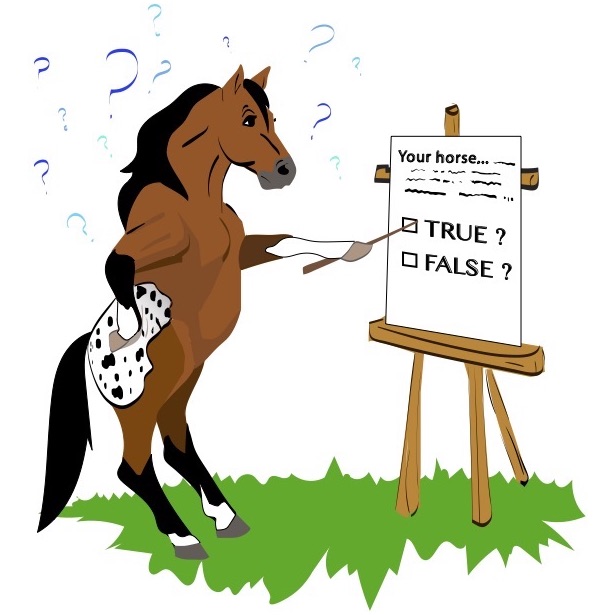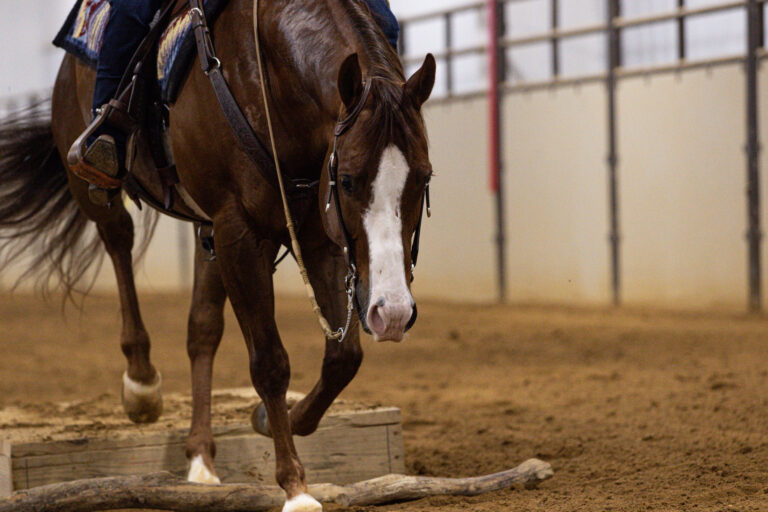
1. True or false: A high-quality hay will provide most horses’ protein requirement for healthy hooves.
T / F
2. Knowing what your horse’s normal hoof temperature feels like in your hand is important because an increase in temperature can indicate…
A) atrophy.
B) overly soft soles.
C) inflammation.
3. What part of your horse’s daily routine encourages circulation in his feet and stimulates hoof growth?
A) Eating, digesting.
B) Moving, exercising.
C) Resting, sleeping.
4. Professional hoof care for your horse should be…
A) formulaic according to a proven method.
B) individualized rather than formulaic.
C) based on the preferences of your farrier.
HOW’D YOU DO? (Answers below.)
Book: Horse Hoof Care, by Cherry Hill and Richard Klimesh
Products we feature have been selected by our editorial staff. If you make a purchase using the links included, we may earn a commission. For more information click here.
1. T is correct. Because the hoof wall consists largely of keratin, a structural protein, your horse’s diet must contain enough high-quality protein to supply the amino acids essential for hoof growth. A good hay will provide most horses’ protein requirement; if your hay is low in protein (you can tell by having it tested), consider supplementing your horse’s intake with a commercial concentrate.
[HERE’S HELP: How to buy the right hay for your horse.]
2. C is correct. An increase in the temperature of your horse’s hoof or hooves can indicate inflammation. Picking out your horse’s feet regularly not only helps keep the frog healthy and thrush-free, it also enables you to evaluate the foot for inflammation or other early signs of injury or disease.
[INFLAMMATION? Laminitis is deadly. Here’s how to protect your horse.]
3. B is correct. Movement promotes circulation and stimulates hoof growth. Ideally, keep your horse where he can move around naturally throughout the day and night (such as in a pasture, pen, or stall-with-run). Work him regularly, too, especially if his set-up doesn’t allow for maximum movement.
[DO YOU KNOW? The 7 worst mistakes in equine hoof care.]
4. B is correct. Tell your hoof-care professional you’re interested in optimal foot health, and chat with him or her at each visit about the ongoing condition of your horse’s hooves so that care can be individualized.
[LEARN MORE about keeping your horse’s hooves strong and healthy.]
Don’t miss out! If you’re not already receiving H&R’s fun and informative newsletter, sign up right now for The Ride. It’s *free*!






